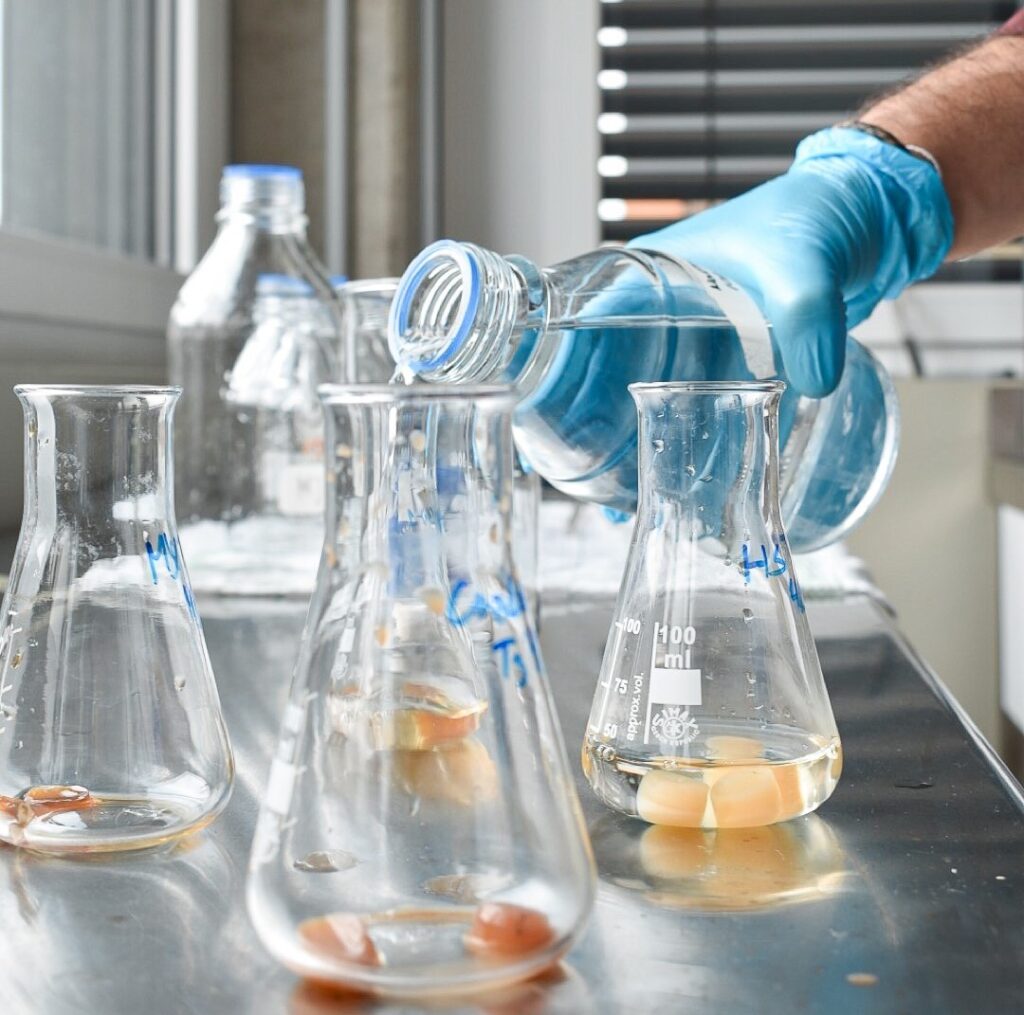Bioweg, a German company that produces customizable bio-based materials, is partnering with Ginkgo Bioworks to optimize the production of bacterial cellulose and create improved variants for different markets. The goal is to offer sustainable alternatives to plastic. Bioweg was founded in 2019 by two Indian-origin founders Dr Prateek Mahalwar and Srinivas Karuturi together with a passion for combining bio-innovation and business.
Microplastic pollution is becoming an increasingly widespread issue globally, and India is not immune to its effects. A recent study conducted by the National Centre for Coastal Research (NCCR) has shown that microplastic pollution levels are shockingly high along the east coast of India, extending up to 10 kilometers into the open sea. The research found that the sediment in this area contained as many as 308 particles of microplastics per kilogram. This discovery raises concerns about the potential impact of microplastic pollution on the environment, wildlife, and human health.

Microplastics pose a significant threat to human health and the environment due to their non-biodegradable nature and the potential presence of toxic chemicals. The University of Newcastle conducted a study that found that the average person could be ingesting approximately 5 grams of plastic each week from commonly consumed foods and beverages. These tiny particles of plastic, which are not easily broken down, can accumulate in the body and have harmful effects. As a result, there is growing concern about the widespread use and disposal of plastics and the need to find sustainable alternatives.
Regulatory agencies and communities worldwide are recognizing the pressing need to address the issue of microplastic pollution. Fortunately, companies like Bioweg, a Germany-based enterprise, are stepping up with innovative solutions. Bioweg has developed biodegradable bacterial cellulose products that can replace synthetic polymers such as acrylates, polyethylene, and polystyrene, which are commonly used in various industries including cosmetics, personal care, homecare, and agricultural coatings. These eco-friendly alternatives could significantly reduce the amount of plastic waste generated and help mitigate the negative effects of microplastic contamination on the environment and human health.
These synthetic polymers often appear as microbeads (micropowders) and texturants (rheology modifiers), which contribute to microplastic pollution in surface waters worldwide. Bioweg’s products based on biodegradable bacterial cellulose have already been tested and implemented by various companies, and they have proven to be an effective substitute for synthetic polymers. This development is an essential step towards creating a more sustainable future for our planet.
“Consumers and companies are united in their commitment to finding better performing and more sustainable alternatives for everyday products to break the chain of microplastic pollution. Our solutions are not just tackling a major environmental, sustainability, and health problem, but also present a robust market opportunity to replace plastic polymers in care, coatings, chemicals, and other industries”, said Prateek Mahalwar, CEO at Bioweg. He further added, “We believe that this partnership will be a win-win situation for us and will give us access to strain engineering and screening capabilities that can enable us to deliver our biobased solutions at scale and competitive pricing.”

Ena Cratsenburg, Chief Business Officer at Ginkgo Bioworks, acknowledged Bioweg’s efforts in fulfilling a crucial market demand to create and manufacture a new class of eco-friendly substitutes for synthetic polymers. “Bioweg is addressing a significant need in the marketplace to develop and produce a new generation of clean alternatives to synthetic polymers”, she noted. Cratsenburg expressed Ginkgo Bioworks’ unwavering commitment to advancing the transition to sustainable, bio-based, and high-performance substitutes and declared the company’s eagerness to collaborate with Bioweg in resolving the urgent issue of microplastic contamination and promoting responsible consumption. “We are happy to partner with Bioweg to address the pressing issues of microplastics contamination and promote responsible consumption”, she said.
The Indian government has recognized the issue of microplastic pollution and is launching programs like the ‘Green Credit Program’ under the ‘Environment (Protection) Act’ to incentivize sustainable measures in industry. The Union Budget 2023-24 also focuses heavily on green growth to accelerate the transition to sustainable growth. Bioweg aims to provide significant support in this regard and possibly establish a production facility for biologic microplastic alternatives in India in the near future, which could serve as a base for supplying the Southeast Asian market.







